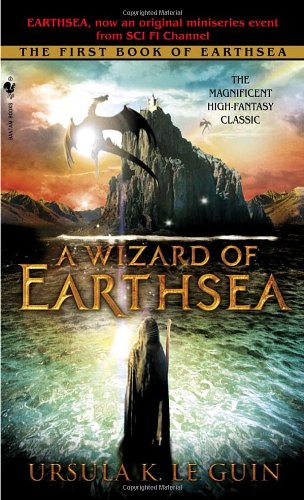Ben Lockwood reviewed A Wizard of Earthsea by Ursula K. Le Guin (The Earthsea Cycle, #1)
A timeless classic
5 stars
A must-read in the collection of fantasy classics

Paperback
Published Jan. 12, 1991 by Bantam Books.
A boy grows to manhood while attempting to subdue the evil he unleashed on the world as an apprentice to the Master Wizard.
A must-read in the collection of fantasy classics
Prose is slim and considered, the imagery vivid without being exhausting, but I did not feel engaged with Ged, personally, philosophically, etc.
I appreciate how concise and capable a novel this is; that it is in its way rubbing against the grain of what, in 1969 especially, are the expectations of a fantasy novel and setting.
But I read it today, in a different cultural milieu. While Left Hand of Darkness and The Dispossessed still felt compelling and relevant, Wizard of Earthsea is something I can only imagine once having a greater potency.
My all-time favorite fantasy/sci-fi book! The language is like poetry but easily readable. It kept me enthralled the first time I read it as a young teenager, and it still does. This is a must-read <3